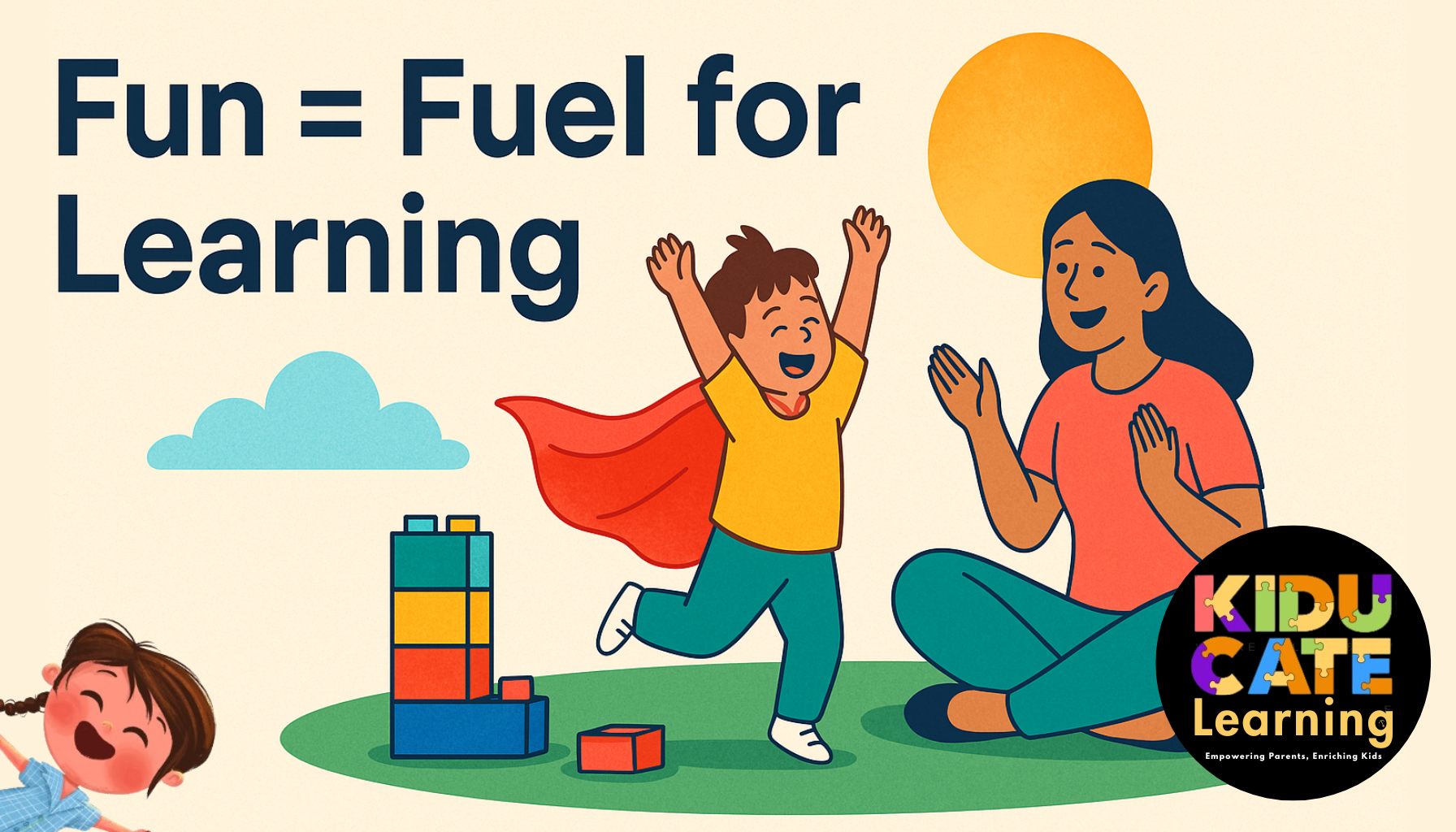Why Joy Supercharges Your Child’s Brain

1. Introduction: Why Fun Shouldn’t Be Optional
Imagine your child giggling while stacking blocks or inventing a game at the dinner table. It might look like play — but it’s actually deep learning in action.
At Kiducate Learning, we believe joy is a serious business when it comes to child development. Let’s unpack how fun isn’t a distraction — it’s fuel.
2. Positive Emotions Boost Retention
Research by Immordino-Yang and Damasio (2007) highlights a crucial link: positive emotions help the brain learn better. Joy, curiosity, and emotional safety activate the limbic system — a key brain region for memory and meaning-making.
When your child is laughing, they’re more likely to retain what they learn. This means playful moments don’t just feel good — they stick.
“Emotions are not a luxury; they’re essential to rational thinking, memory, and learning.” – Immordino-Yang & Damasio
3. Play Builds Independence and Executive Function
Want your little one to plan, stay focused, and manage big emotions? Try making your morning routine more playful.
The Harvard Center on the Developing Child found that play-based routines enhance executive function — skills like working memory, flexible thinking, and self-control. These are the same abilities your child will need to thrive in school and beyond.
So next time your child resists getting dressed, try gamifying it: “Can you become the Fastest Shoe Superhero in 5 seconds?”
4. Gamification Isn’t Just for Apps — It Works at Home Too
Gamification — using rewards, feedback, and progress markers — makes mundane tasks feel like a game. A meta-analysis by Hamari et al. (2014) found it significantly boosts motivation and persistence, especially for young learners.
Use a sticker chart for brushing teeth. Or narrate the bedtime routine like a treasure hunt. These strategies work because they:
-
Provide clear feedback
-
Create a sense of progress
-
Turn power struggles into cooperation
Fun routines don’t just get the job done — they build confidence and connection.
5. KL’s Secret Sauce: Turning Daily Life Into Discovery
At Kiducate Learning, we see every moment — snack time, bath time, downtime — as a chance to learn together. When we embed joy into routines, children don’t just cooperate — they feel capable and connected.
Our content is designed to help parents:
-
Shift from nagging to play cues.
-
Create shared rituals full of laughter.
-
Grow their child’s brain through emotion, not pressure.
Final Thought
The science is clear: joyful learning sticks. When we lead with fun, we don’t just make life easier — we raise independent, resilient kids who love to learn.
Because at KL, play isn’t a break from learning — it’s how learning begins.
💡 Want more playful tips like this?
Subscribe to join the KL community. 💌
